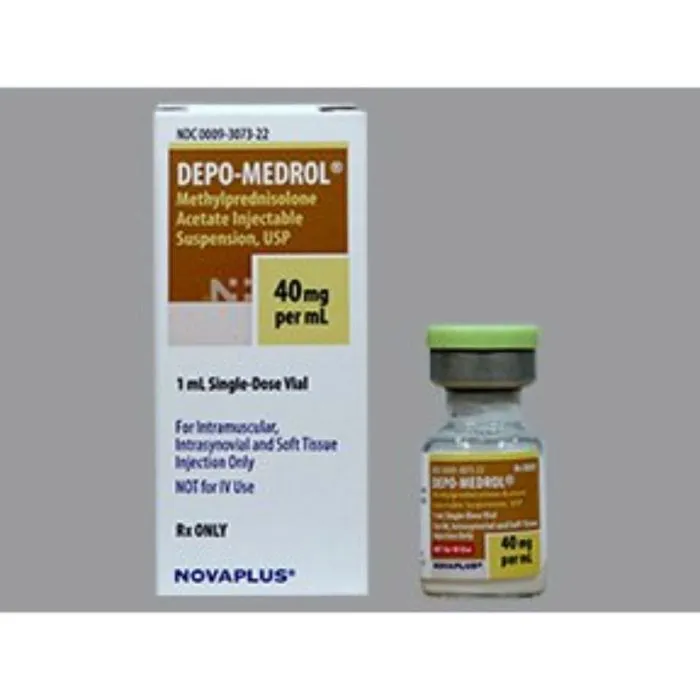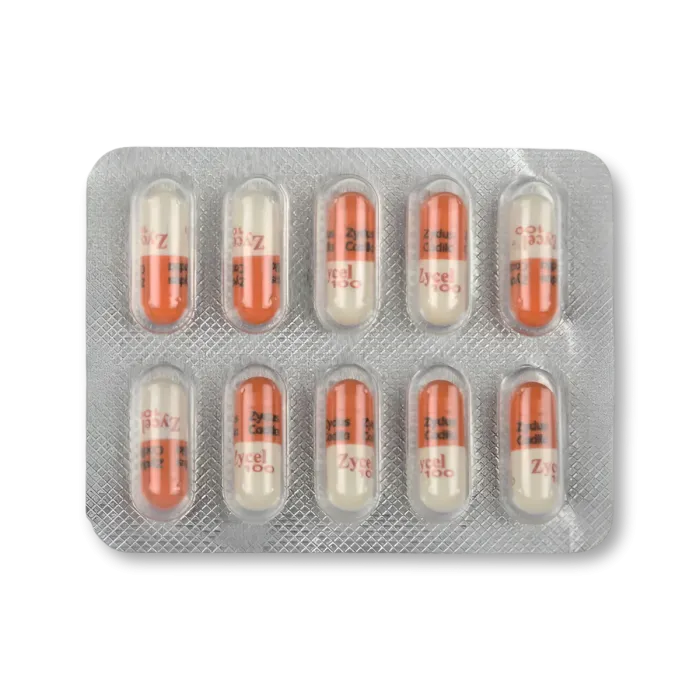If you’ve been prescribed Medrol, you’re likely wondering how much to take, when, and what to expect. Medrol (Methylprednisolone) is a strong corticosteroid commonly used to reduce inflammation and treat various health conditions, including Arthritis, severe allergies, Asthma, autoimmune disorders, and even certain skin or endocrine issues.
Its versatility makes it a go-to medication for both short-term flare-ups and long-term management of chronic conditions.
In this article, we’ll break down typical Medrol dosages by condition, how the medication works inside your body, and what precautions to take to avoid side effects. Read on to know all about the dosages and precautions you must take while taking Medrol.
Medrol dosage guide for common conditions
Medrol (Methylprednisolone) is not a one-size-fits-all medication. Its dosage depends on the condition being treated, its severity, and how your body responds. Doctors often adjust doses based on whether your symptoms are flaring or stabilizing.
Typically, the goal is to use the lowest effective dose of Medrol for the shortest time possible to control symptoms while minimizing side effects. Below are general dosage guidelines for common conditions:
Also read: To know all about Medrol and how it works, read this article: What is Medrol?
Save up to 90% on your medicine bills

Depo-Medrol 40 mg Injection 1ml

Zycel 100 Capsule

Celcox 200 mg Capsule

Medrol 4 mg Tablet
Dosage for inflammation
Medrol helps reduce inflammation in many conditions. Adults usually take between 4 to 48 mg daily, all at once or divided into smaller doses. In more severe cases, doses up to 1 mg/kg/day might be required, then lowered over time. Regular monitoring and a gradual taper are key to reducing side effects.
Dosage for Allergies
For severe allergies, like Asthma, rashes, or hay fever, doctors may prescribe 16–40 mg per day, adjusted to symptom severity. A Medrol dose pack often starts at 24 mg on day one and tapers down over 6 days. Once symptoms settle, the dose should be lowered to the minimum effective level.
Dosage for Arthritis
In Arthritis, Medrol helps reduce joint pain and swelling. Oral doses usually range from 4–48 mg daily, depending on how active the condition is. For joint injections, the dose depends on joint size:
- Small: 4–10 mg
- Medium: 10–40 mg
- Large: 20–80 mg
Doctors may repeat injections every 1–5 weeks if needed.
Dosage for COPD
For Chronic Obstructive Pulmonary Disease (COPD) flare-ups, Medrol is typically prescribed at 40–60 mg daily (oral or IV) for 3–10 days. Children usually receive 1–2 mg/kg/day (up to 60 mg). A short course is often practical, and long-term use may require a lower maintenance dose with tapering under medical supervision.
How do I take Medrol correctly?
Always follow your doctor’s instructions and the prescription label to take the correct Medrol dosage. Medrol doses can vary widely depending on your condition and may change over time, so never adjust your dose alone to avoid Medrol side effects.
- Swallow the tablet with a full glass of water, and always take it with food to help protect your stomach.
- To maintain a consistent routine, try to take Medrol at the same time each day, preferably in the morning if taken once daily.
- If you miss a dose, take it as soon as you remember. If it’s almost time for your next dose, skip the missed one—do not double up.
- Do not stop Medrol abruptly, especially if you’ve been on it for over a few weeks.
- Medrol should be kept at room temperature, away from heat, moisture, and direct light, and out of the reach of children.
- Attend all scheduled check-ups so your doctor can monitor your response and adjust your dose if needed.
- Limit or avoid alcohol to reduce the risk of stomach upset or ulcers.
- Tell your doctor about all other medications and supplements you take to prevent harmful interactions.
When should you stop or taper your Medrol dose?
Don’t stop Medrol suddenly or adjust your dose on your own. Since it’s a steroid, stopping too fast can cause tiredness, body aches, or a return of symptoms. Your doctor will help you taper slowly, usually over days or weeks, based on how long you’ve been taking it and your overall health.
This gives your body time to adjust and avoids side effects. If you feel unwell during the taper, tell your doctor right away. Always follow your doctor’s instructions to stay safe.
Interaction with other medications
Medrol can interact with several medications, which may change how it works or increase the risk of side effects. Everyday interactions include blood thinners, Nonsteroidal Anti-inflammatory Drugs (NSAIDs), Diabetes medications, certain vaccines, and antifungals. Some supplements, like St. John’s Wort, can also interfere with Medrol’s effectiveness.
These interactions may raise your risk of infections, bleeding, or reduced treatment benefits. Always inform your doctor about all prescription drugs, over-the-counter meds, and supplements you’re taking.
Precautions before taking Medrol
The following are the precautions you must take while taking Medrol:
- Tell your doctor about any health issues, especially infections, liver problems, or Diabetes.
- Share a list of the medications and supplements you’re taking to avoid any unwanted interactions.
- Avoid live vaccines while on this medication, as your immune response might be weaker..
- Take Medrol with food to reduce the risk of stomach upset.
- Use the lowest dose for the shortest time your doctor recommends.
- If you’re pregnant or breastfeeding, it is essential to consult your doctor before taking Medrol.
- Don’t stop Medrol suddenly—your doctor will guide you on safely reducing the dose.
Conclusion
In conclusion, Medrol is a trusted and effective option for treating conditions like inflammation, Arthritis, Asthma, and allergies. To get the best results, it’s important to stick to the dosage your doctor prescribes and avoid making changes on your own.
Medrol can interact with other medications, so always keep your doctor informed about everything you’re taking, including over-the-counter drugs and supplements. If you ever need to stop taking Medrol, it should be done gradually under medical supervision to prevent withdrawal symptoms and allow your body to adjust.
With the right approach, Medrol can help you manage your condition safely and effectively. Regular check-ups are essential to track the treatment’s effectiveness, catch potential side effects early, and adjust your dosage when necessary.

Frequently Asked Questions
How long does a dose pack stay in your system?
A Medrol dose pack typically stays in your system for 1 to 2 days after the last dose. However, its effects on inflammation and the immune system can last longer. The exact duration depends on your dose, treatment length, and how your body processes the medication.
What is the dosage of Medrol dose pack?
The standard Medrol dose pack contains 21 tablets of 4 mg each, taken over 6 days. The usual tapering schedule starts with 6 tablets on day 1 and decreases by one tablet daily. Always follow your doctor’s instructions for the correct dosage and timing.
What foods should I avoid while on Medrol?
Avoid simple carbohydrates and sugary foods like cakes, cookies, and candy. Limit saturated fats and cholesterol. Choose lean meats, poultry, and fish to help manage blood sugar levels and support overall health during treatment with Medrol.
What drugs, substances, or supplements interact with Medrol?
Medrol can interact with blood thinners, Nonsteroidal Anti-Inflammatory Drugs (NSAIDs), diuretics, vaccines, and certain antifungals or antibiotics. Supplements like St. John’s Wort may also affect its effectiveness. Always tell your doctor about all your medicines and supplements to avoid interactions.
Cheap Medicine Shop only refers to credible, authoritative sources for our content. If you’re curious about how we ensure the integrity of our content, we encourage you to read our Content Information Policy.














